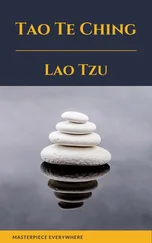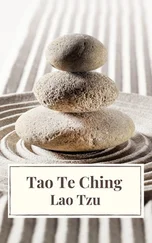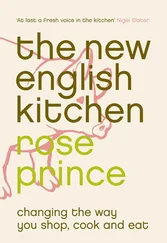The Way is the fate of men,
The treasure of the saint,
And the refuge of the sinner.
Fine words are often borrowed,
And great deeds are often appropriated;
Therefore, when a man falls, do not abandon him,
And when a man gains power, do not honour him;
Only remain impartial and show him the Way.
Why should someone appreciate the Way?
The ancients said, "By it, those who seek may easily find,
And those who regret may easily absolve"
So it is the most precious gift.
Practice no-action;
Attend to do-nothing;
Taste the flavorless,
Magnify the small,
Multiply the few,
Return love for hate.
Deal with the difficult while it is yet easy;
Deal with the great while it is yet small;
The difficult develops naturally from the easy,
And the great from the small;
So the sage, by dealing with the small,
Achieves the great.
Who finds it easy to promise finds it hard to be trusted;
Who takes things lightly finds things difficult;
The sage recognizes difficulty, and so has none.
64a. Care at the Beginning
What lies still is easy to grasp;
What lies far off is easy to anticipate;
What is brittle is easy to shatter;
What is small is easy to disperse.
Yet a tree broader than a man can embrace is born of a tiny shoot;
A dam greater than a river can overflow starts with a clod of earth;
A journey of a thousand miles begins at the spot under one's feet.
Therefore deal with things before they happen;
Create order before there is confusion.
He who acts, spoils;
He who grasps, loses.
People often fail on the verge of success;
Take care at the end as at the beginning,
So that you may avoid failure.
The sage desires no-desire,
Values no-value,
Learns no-learning,
And returns to the places that people have forgotten;
He would help all people to become natural,
But then he would not be natural.
The ancients did not seek to rule people with knowledge,
But to help them become natural.
It is difficult for knowledgeable people to become natural;
So to use law to control a nation weakens the nation,
But to use nature to control a nation strengthens the nation.
Understanding these two paths is understanding subtlety;
Subtlety runs deep, ranges wide,
Resolves confusion and preserves peace.
The river carves out the valley by flowing beneath it.
Thereby the river is the master of the valley.
In order to master people
One must speak as their servant;
In order to lead people
One must follow them.
So when the sage rises above the people,
They do not feel oppressed;
And when the sage stands before the people,
They do not feel hindered.
So the popularity of the sage does not fail,
He does not contend, and no one contends against him.
All the world says,
"I am important;
I am separate from all the world.
I am important because I am separate,
Were I the same, I could never be important."
Yet here are three treasures
That I cherish and commend to you:
The first is compassion,
By which one finds courage.
The second is restraint,
By which one finds strength.
And the third is unimportance,
By which one finds influence.
Those who are fearless, but without compassion,
Powerful, but without restraint,
Or influential, yet important,
Cannot endure.
Compassion is the finest weapon and best defence.
If you would establish harmony,
Compassion must surround you like a fortress.
Therefore,
A good soldier does not inspire fear;
A good fighter does not display aggression;
A good conqueror does not engage in battle;
A good leader does not exercise authority.
This is the value of unimportance;
This is how to win the cooperation of others;
This to how to build the same harmony that is in nature.
There is a saying among soldiers:
It is easier to lose a yard than take an inch.
In this manner one may deploy troops without marshalling them,
Bring weapons to bear without exposing them,
Engage the foe without invading them,
And exhaust their strength without fighting them.
There is no worse disaster than misunderstanding your enemy;
To do so endangers all of my treasures;
So when two well matched forces oppose eachother,
The general who maintains compassion will win.
My words are easy to understand
And my actions are easy to perform
Yet no other can understand or perform them.
My words have meaning; my actions have reason;
Yet these cannot be known and I cannot be known.
We are each unique, and therefore valuable;
Though the sage wears coarse clothes, his heart is jade.
Who recognizes his limitations is healthy;
Who ignores his limitations is sick.
The sage recognizes this sickness as a limitation.
And so becomes immune.
When people have nothing more to lose,
Then revolution will result.
Do not take away their lands,
And do not destroy their livelihoods;
If your burden is not heavy then they will not shirk it.
The sage maintains himself but exacts no tribute,
Values himself but requires no honours;
He ignores abstraction and accepts substance.
Who is brave and bold will perish;
Who is brave and subtle will benefit.
The subtle profit where the bold perish
For fate does not honour daring.
And even the sage dares not tempt fate.
Fate does not attack, yet all things are conquered by it;
It does not ask, yet all things answer to it;
It does not call, yet all things meet it;
It does not plan, yet all things are determined by it.
Fate's net is vast and its mesh is coarse,
Yet none escape it.
If people were not afraid of death,
Then what would be the use of an executioner?
If people were only afraid of death,
And you executed everyone who did not obey,
No one would dare to disobey you.
Then what would be the use of an executioner?
People fear death because death is an instrument of fate.
When people are killed by execution rather than by fate,
This is like carving wood in the place of a carpenter.
Those who carve wood in place of a carpenter
Often injure their hands.
When rulers take grain so that they may feast,
Their people become hungry;
When rulers take action to serve their own interests,
Their people become rebellious;
When rulers take lives so that their own lives are maintained,
Their people no longer fear death.
When people act without regard for their own lives
They overcome those who value only their own lives.
A newborn is soft and tender,
A crone, hard and stiff.
Plants and animals, in life, are supple and succulent;
In death, withered and dry.
So softness and tenderness are attributes of life,
Читать дальше
![Lao Zi Dao De Jing [Tao Te Ching] (english) обложка книги](/books/3890/lao-zi-dao-de-jing-tao-te-ching-english-cover.webp)
![Lao Zi - Dao De Jing [Tao Te Ching] (chinese)](/books/3891/lao-zi-dao-de-jing-tao-te-ching-chinese-thumb.webp)
![Lao Zi - Dao De Jing [Tao Te Ching] (espanol)](/books/3892/lao-zi-dao-de-jing-tao-te-ching-espanol-thumb.webp)
![Автор неизвестен Эпосы, мифы, легенды и сказания - Самые лучшие английские легенды [The Best English Legends]](/books/34729/avtor-neizvesten-eposy-mify-legendy-i-skazaniya-s-thumb.webp)








